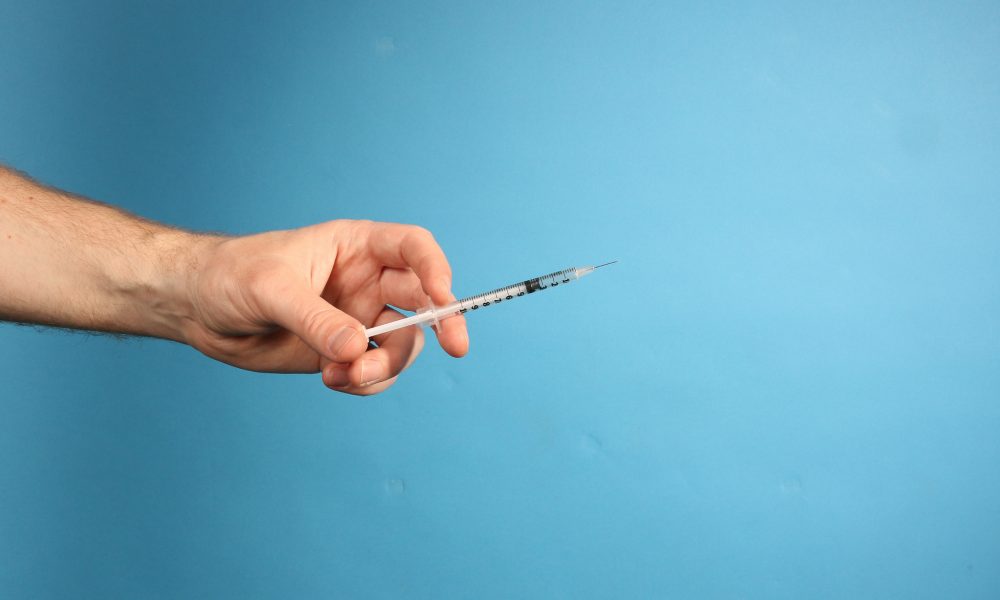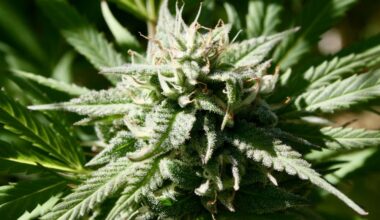A New York Assembly committee on Tuesday advanced a bill to establish a statewide safe consumption site program, allowing regulators to authorize facilities where people could use currently illicit drugs in a medically supervised environment.
The legislation from Assemblywoman Linda Rosenthal (D) was reported out of the Assembly Health Committee, with a few Democrats joining the Republican minority in voting against it. The bill now heads to the Codes Committee before potentially moving to the floor for consideration.
Under the proposal, the New York Health Department and local agencies would have the ability to authorize safe consumption sites and regulate the facilities.
BREAKING: My legislation, A.224, to authorize overdose prevention centers in New York State just passed the Health Committee.
Countries around the world have used #OPCs for decades to help #EndOverdose. Allowing OPCs to operate in NYS will save lives. pic.twitter.com/aCqwOIOCjP
— Linda B. Rosenthal “the #OriginalRosenthal” (@LindaBRosenthal) May 10, 2022
The intent of the legislation is to prevent overdose deaths by having medical professionals on site at places where they can use pre-obtained controlled substances without facing the threat of arrest or incarceration. People would also be given treatment resources.
Further, the bill would require facilities to provide syringe exchange services where people could obtain sterile hypodermic needles and also safely deposit used syringes.
—
Marijuana Moment is already tracking more than 1,000 cannabis, psychedelics and drug policy bills in state legislatures and Congress this year. Patreon supporters pledging at least $25/month get access to our interactive maps, charts and hearing calendar so they don’t miss any developments.![]()
Learn more about our marijuana bill tracker and become a supporter on Patreon to get access.
—
Education would also be a key component of the law, with a mandate that licensed safe consumption sites provide, “at a minimum,” information about the risks of contracting diseases such as HIV and viral hepatitis when sharing needles.
“This bill will reduce overdose deaths associated with opioid use and the dangers to the public caused by public IV drug use,” the measure’s justification section says, citing the experiences of other countries that currently permit overdose prevention facilities.
The centers would also need to provide education and access to the overdose reversal drug naloxone.
“Substance abuse is a disease and we need to have an open mind [about] how we address those who are addicted and how we can help them from dying,” one member of the Assembly committee said at the hearing on Tuesday.
New York City became the first city in the U.S. to allow government-sanctioned overdose prevention sites to operate in their jurisdiction—and supporters have touted the early results showing that the facilities are already saving lives.
From upstate to downstate, legislators recognize that saving lives is not divisive, but a moral obligation.
‘With only 10 session days left on the calendar, we need our leaders to step into their power, and find the political will to pass the #SCSA.’ -James Hill, User Union. pic.twitter.com/g19ALwsl3B
— VOCAL-NY (@VOCALNewYork) May 10, 2022
“We applaud the members of the Assembly Health Committee for ensuring that this life saving bill is one step closer to passing their house. Now, we need our electeds in the Senate to do the same,” VOCAL-NY’s James Hill said in a press release.
“While Overdose Prevention Centers may not be necessary in all New York State districts, they are desperately needed in communities like mine in Buffalo,” he said. “With only 10 session days left on the calendar, we need our leaders to step into their power, and find the political will to pass the Safer Consumption Services Act.”
Meanwhile, there’s ongoing litigation between the Justice Department and a Philadelphia-based non-profit organization that sought to launch safe consumption sites only to be challenged under the Trump administration.
A deadline for a response from the Biden administration was recently extended in a federal court, which advocates say is reflective of the “productive” conversations they’ve have around the harm reduction policy.
DOJ said in February that it is actively “evaluating supervised consumption sites, including discussions with state and local regulators about appropriate guardrails for such sites, as part of an overall approach to harm reduction and public safety.”
A poll released in April found that a majority of Americans (64 percent) support allowing safe consumption sites.
While the Biden administration has yet to take a specific position on policy proposals to authorize safe consumption facilities, the National Institutes of Health (NIH) put out a pair of requests for applications (RFAs) in December for an effort that will provide funding for efforts to investigate how that and other harm reduction policies could help address the drug crisis.
National Institute on Drug Abuse (NIDA) Director Nora Volkow has repeatedly expressed concerns about the harms caused by the criminalization of drug possession, and she told Marijuana Moment in an interview last year that she is open to continuing to explore “how these support systems as a community can help people, for example, engage in treatment, how they can prevent them from getting infected from HIV and how they can prevent them from overdosing and dying.”
Activists in several cities have attempted to establish harm reduction centers in recent years, citing promising results from programs that have been put into place in other countries like Canada and Australia.
In October, the Supreme Court rejected a request to hear a case on the legality of establishing the Safehouse facilities, but the case is still before a lower federal court.
The White House drug czar, Rahul Gupta, recently said that it’s critical to explore “any and every option” to reduce overdose deaths, and that could include allowing safe consumption sites for illegal substances if the evidence supports their efficacy.
The Office of National Drug Control Policy (ONDCP) director previously said that he couldn’t talk about the harm reduction centers due to the ongoing litigation related to Safehouse, but he seemed more open to the possibility in an interview with CNN late last year.
The secretary of the U.S. Department of Health and Human Services (HHS), Xavier Bacerra, also recently signaled that the Biden administration would not move to block the establishment safe injection sites, stressing that “we are literally trying to give users a lifeline.”
But a department spokesperson later walked those remarks back, stating that “HHS does not have a position on supervised consumption sites” and the “issue is a matter of ongoing litigation.” In any case, it would be up to DOJ to decide whether to pursue operators of the facilities under the Controlled Substances Act.
Bacerra was among eight top state law enforcement officials who filed an amicus brief in support of the Safehouse’s safe injection site plan when he served as California’s attorney general.
A coalition of 80 current and former prosecutors and law enforcement officials—including one who is Biden’s pick for U.S. attorney of Massachusetts—previously filed a brief urging the Supreme Court to take up Safehouse’s safe consumption case.
While New York City is the first to open the harm reduction centers, the governor of Rhode Island did sign a historic bill in July to establish a safe consumption site pilot program.
Massachusetts lawmakers advanced similar legislation last year, but it was not ultimately enacted.
A similar harm reduction bill in California, sponsored by Sen. Scott Wiener (D), was approved in the state Senate in April, but further action has been delayed until this year.
IRS Official Addresses Marijuana Industry’s Financial Challenges And Congressional Solutions
Photo courtesy of Jernej Furman.
Medical Disclaimer:
The information provided in these blog posts is intended for general informational and educational purposes only. It is not a substitute for professional medical advice, diagnosis, or treatment. Always seek the advice of your physician or other qualified healthcare provider with any questions you may have regarding a medical condition. The use of any information provided in these blog posts is solely at your own risk. The authors and the website do not recommend or endorse any specific products, treatments, or procedures mentioned. Reliance on any information in these blog posts is solely at your own discretion.







